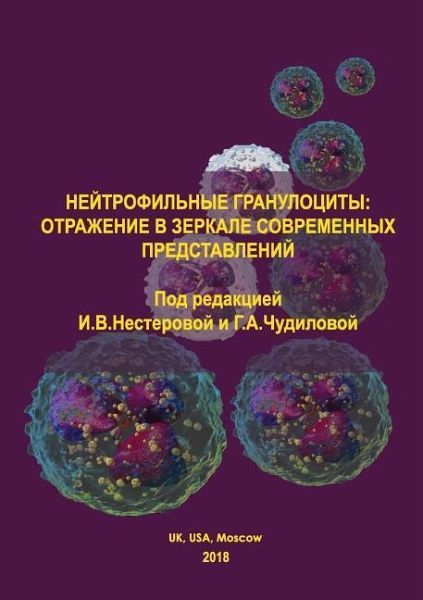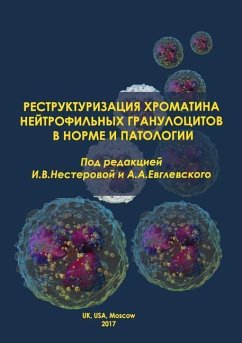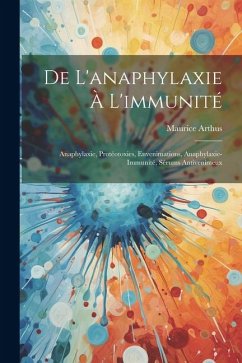
Neutrophilous granulocytes: reflection in the mirror of modern ideas
Versandkostenfrei!
Nicht lieferbar
In recent decades, the interest of researchers to study the amazing cells of the immune system of neutrophilic granulocytes (NG) has increased significantly worldwide. Modern research convincingly shows that NG are not just quick reaction cells - "professional killers" that destroy aggressive bacteria, viruses, fungi, but also key effector and regulatory cells, both innate and adaptive immunity, through various mechanisms, and, at the same time, play a crucial role in immunopathogenesis of a wide range of diseases, both infectious and inflammatory, and autoimmune, allergic and oncological. The...
In recent decades, the interest of researchers to study the amazing cells of the immune system of neutrophilic granulocytes (NG) has increased significantly worldwide. Modern research convincingly shows that NG are not just quick reaction cells - "professional killers" that destroy aggressive bacteria, viruses, fungi, but also key effector and regulatory cells, both innate and adaptive immunity, through various mechanisms, and, at the same time, play a crucial role in immunopathogenesis of a wide range of diseases, both infectious and inflammatory, and autoimmune, allergic and oncological. The team of authors of this book is engaged in the study of various aspects of NG functioning, both in norm and in various pathological conditions for more than 30 years. The monograph presents a modern analysis of scientific data obtained by both domestic and foreign researchers. In addition, we describe the most interesting, from our point of view, studies conducted by our team during the last decade. They are devoted to the detection of various subpopulations of NG, changes in their phenotype and functional activity in various atypically infectious and inflammatory diseases, both in children and in adult patients, and in oncopathology, - colorectal cancer, in adult patients. At the same time, both diagnostic and prognostic significance of the detection of various subpopulations of NG and the transformation of their phenotype was demonstrated. Peculiarities of the NG phenotype and their functional properties demonstrate the presence of NG subpopulations with different possibilities: different receptor equipment, ability to restructure chromatin, express cytokine genes and secrete cytokines, realize the contents of the granular apparatus, produce active forms of oxygen, perform cytotoxicity, form NET. A modern classification of NG subpopulations is given. NG dysfunction: quantitative or functional defects, lack of adequate response - blockade of functions lead to the development of sluggish, not responding to traditional therapy of acute or chronic infectious and inflammatory diseases, hyperactivation of NG occurs in autoimmune diseases and other immunodeficient processes. Remodeling of NG dysfunctions is the key to new immunotherapeutic strategies. We believe that the monograph will be of interest not only to clinical immunologists and allergologists, but also infectious disease specialists, pediatricians, therapists, otolaryngologists, researchers, teachers, graduate students, students of medical universities and university biological faculties.










